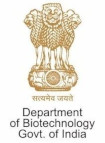Astrocytic reactivity triggered by defective autophagy and metabolic failure causes neurotoxicity in frontotemporal dementia type 3.
| Title | Astrocytic reactivity triggered by defective autophagy and metabolic failure causes neurotoxicity in frontotemporal dementia type 3. |
| Publication Type | Journal Article |
| Year of Publication | 2021 |
| Authors | Chandrasekaran A, Dittlau KStoklund, Corsi GI, Haukedal H, Doncheva NT, Ramakrishna S, Ambardar S, Salcedo C, Schmidt SI, Zhang Y, Cirera S, Pihl M, Schmid B, Nielsen TTolstrup, Nielsen JE, Kolko M, Kobolák J, Dinnyés A, Hyttel P, Palakodeti D, Gorodkin J, Muddashetty RS, Meyer M, Aldana BI, Freude KK |
| Journal | Stem Cell Reports |
| Volume | 16 |
| Issue | 11 |
| Pagination | 2736-2751 |
| Date Published | 2021 Nov 09 |
| ISSN | 2213-6711 |
| Abstract | Frontotemporal dementia type 3 (FTD3), caused by a point mutation in the charged multivesicular body protein 2B (CHMP2B), affects mitochondrial ultrastructure and the endolysosomal pathway in neurons. To dissect the astrocyte-specific impact of mutant CHMP2B expression, we generated astrocytes from human induced pluripotent stem cells (hiPSCs) and confirmed our findings in CHMP2B mutant mice. Our data provide mechanistic insights into how defective autophagy causes perturbed mitochondrial dynamics with impaired glycolysis, increased reactive oxygen species, and elongated mitochondrial morphology, indicating increased mitochondrial fusion in FTD3 astrocytes. This shift in astrocyte homeostasis triggers a reactive astrocyte phenotype and increased release of toxic cytokines, which accumulate in nuclear factor kappa b (NF-κB) pathway activation with increased production of CHF, LCN2, and C3 causing neurodegeneration. |
| DOI | 10.1016/j.stemcr.2021.09.013 |
| Alternate Journal | Stem Cell Reports |
| PubMed ID | 34678206 |
| PubMed Central ID | PMC8581052 |


